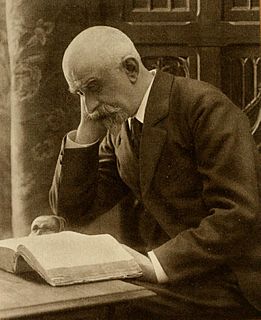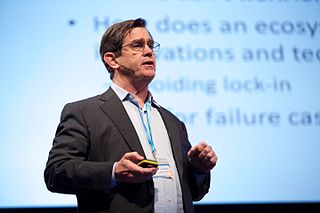A Quote by Samuel Johnson
Leisure and curiosity might soon make great advances in useful knowledge, were they not diverted by minute emulation and laborious trifles.
Related Quotes
The life and soul of science is its practical application, and just as the great advances in mathematics have been made through the desire of discovering the solution of problems which were of a highly practical kind in mathematical science, so in physical science many of the greatest advances that have been made from the beginning of the world to the present time have been made in the earnest desire to turn the knowledge of the properties of matter to some purpose useful to mankind.
We have heard of a Society for the Diffusion of Useful Knowledge. It is said that knowledge is power, and the like. Methinks there is equal need of a Society for the Diffusion of Useful Ignorance, what we will call Beautiful Knowledge, a knowledge useful in a higher sense: for what is most of our boasted so-called knowledge but a conceit that we know something, which robs us of the advantage of our actual ignorance? What we call knowledge is often our positive ignorance; ignorance our negative knowledge.
Like anyone else, a lot of what I do and how I think has been shaped by my family and my overall life experience. Many who know me say I am also defined by my curiosity and thirst for learning. I buy more books than I can finish. I sign up for more online courses than I can complete. I fundamentally believe that if you are not learning new things, you stop doing great and useful things. So family, curiosity and hunger for knowledge all define me.
Curiosity in children ... is but an appetite after knowledge and therefore ought to be encouraged in them, not only as a good sign, but as the great instrument nature has provided to remove that ignorance they were born with and which, without this busy inquisitiveness, will make them dull and useless creatures.
We were deliberately designed to learn only by trial and error. We're brought up, unfortunately, to think that nobody should make mistakes. Most children get de-geniused by the love and fear of their parents - that they might make a mistake. But all my advances were made by mistakes. You uncover what is when you get rid of what isn't.
I feel that all knowledge should be in the free-trade zone. Your knowledge, my knowledge, everybody's knowledge should be made use of. I think people who refuse to use other people's knowledge are making a big mistake. Those who refuse to share their knowledge with other people are making a great mistake, because we need it all. I don't have any problem about ideas I got from other people. If I find them useful, I'll just ease them right in and make them my own.
The main object of the work was to present such a survey of the advances already made in physical knowledge, and of the mode in which they have been made, as might serve as a real and firm basis for our speculations concerning the progress of human knowledge, and the processes by which sciences are formed.
My curiosity, alas, is not the kind that can be satisfied by objective knowledge. Plato said that opinion is worthless and that only knowledge counts, which is a neat formulation. ... But melancholy Danes from the northern mists understand that opinion is all there is. The great questions transcend fact, and discourse is a process of personality. Knowledge cannot respond to knowledge. And wisdom? Is it not opinion refined, opinion killed and resuscitated upward? Maybe Plato would have agreed with this.
In this game he had acquired a great deal of muddled knowledge, more than one approximation and less than one certitude. And absence of energy, a curiosity that was too sharp to be crushed immediately, a lack of order in his ideas, a weakening of his spiritual boundaries, which were promptly twisted, an excessive passion for running along forked roads and wearying of the path as soon as he had started on it, mental indigestion demanding varied dishes, quickly tiring of the foods he desired, digesting almost all, but badly, was his state.
No one has a monopoly on knowledge the way that, say, IBM had in the 1960s in computing, or that Bell Labs had through the 1970s in communications. When useful knowledge exists in companies of all sizes and also in universities, non-profits and individual minds, it makes sense to orient your innovation efforts to accessing, building upon and integrating that external knowledge into useful products and services.




































